Vocabulary development Phonics Worksheets for Ages 6-7
10 filtered results
-
From - To
Enhance your child's vocabulary with our engaging Phonics Worksheets designed for ages 6-7! Our colorfully illustrated resources focus on essential phonics skills, helping young learners decode words and understand their meanings. Each worksheet is crafted to encourage interactive and fun learning experiences, featuring a variety of activities such as word searches, matching exercises, and fill-in-the-blanks. These worksheets not only strengthen phonics knowledge but also promote critical thinking and literacy skills. Ideal for use at home or in the classroom, our vocabulary development worksheets provide an excellent foundation for readers, making learning enjoyable and effective. Start boosting your child's vocabulary today!
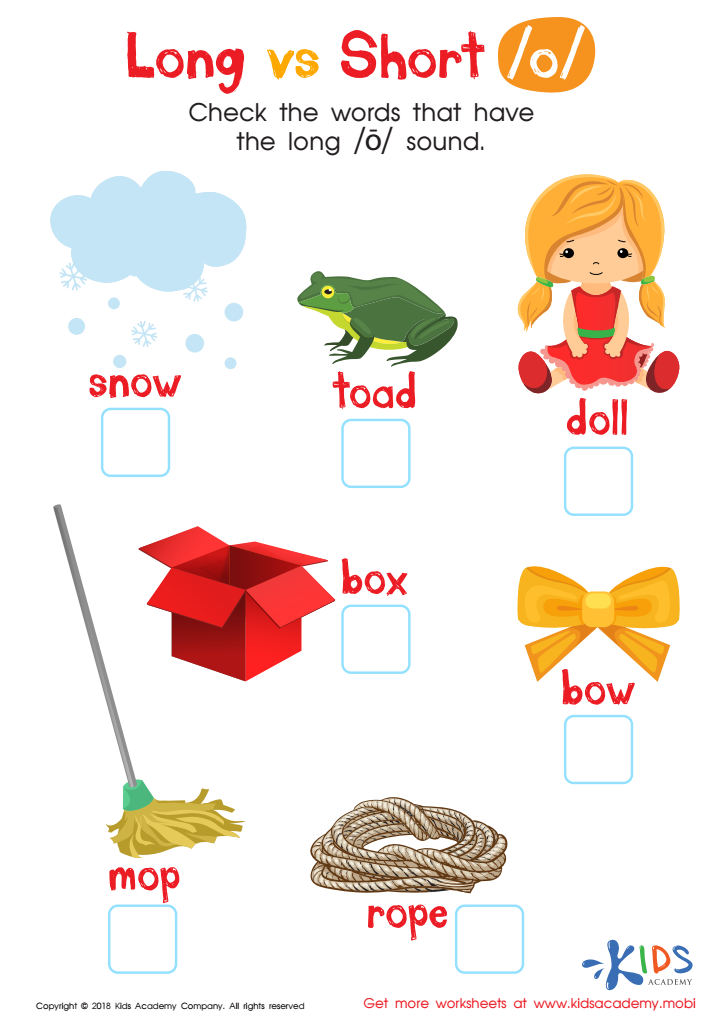

Long vs Short O Reading Worksheet


Vowel and Consonant Sounds: Assessment Worksheet
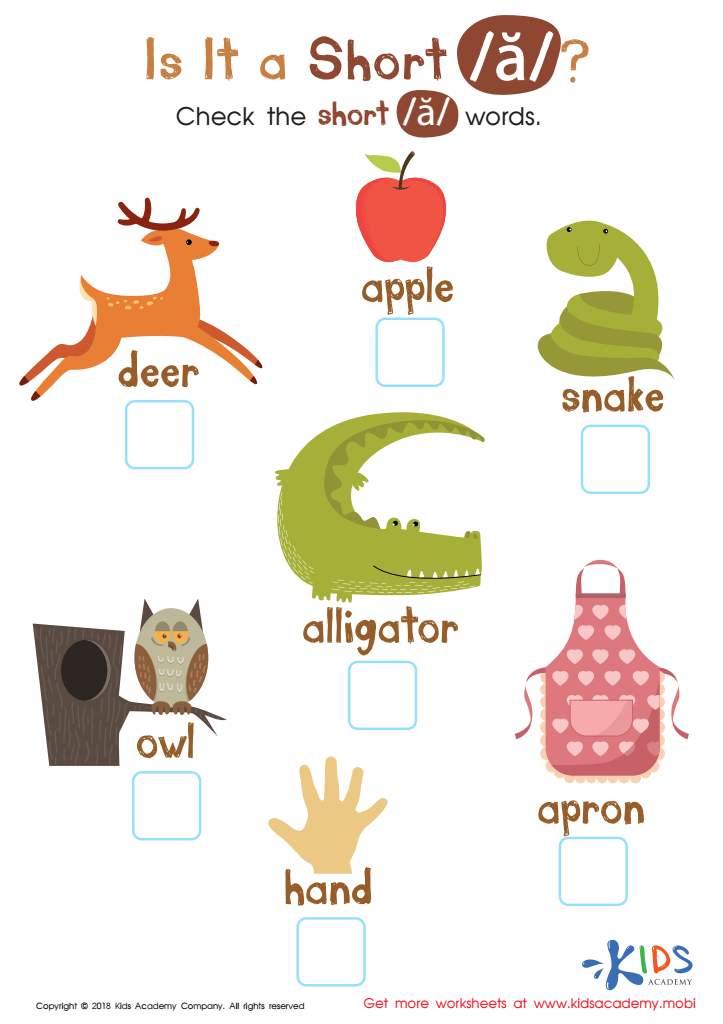

Is It Short A? Reading Worksheet
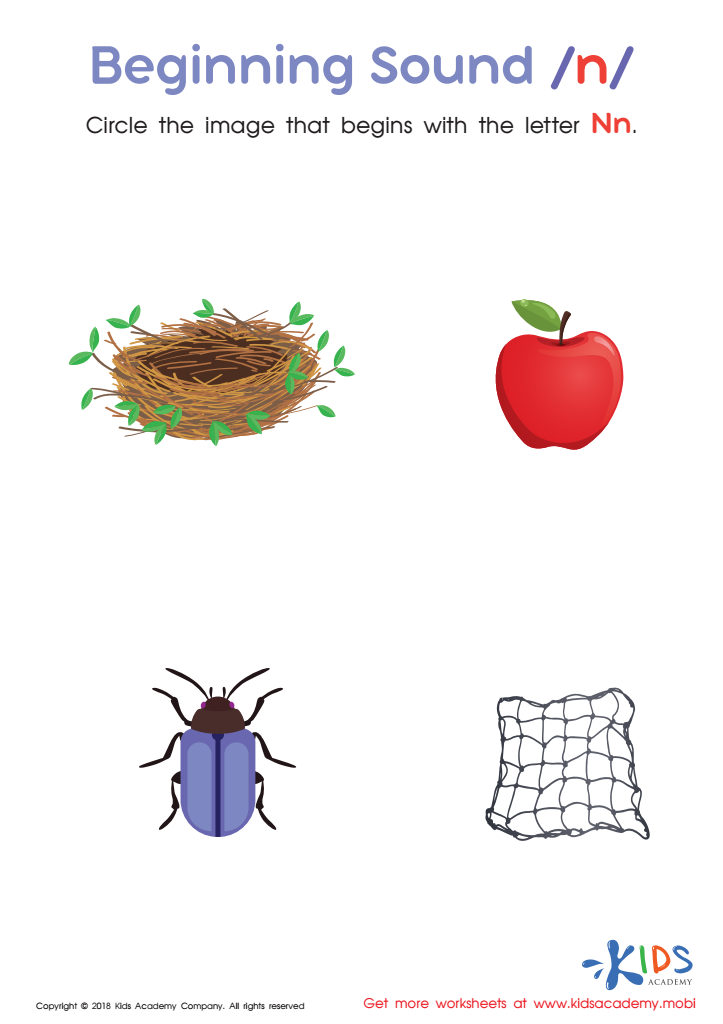

Beginning Sound «n» Worksheet
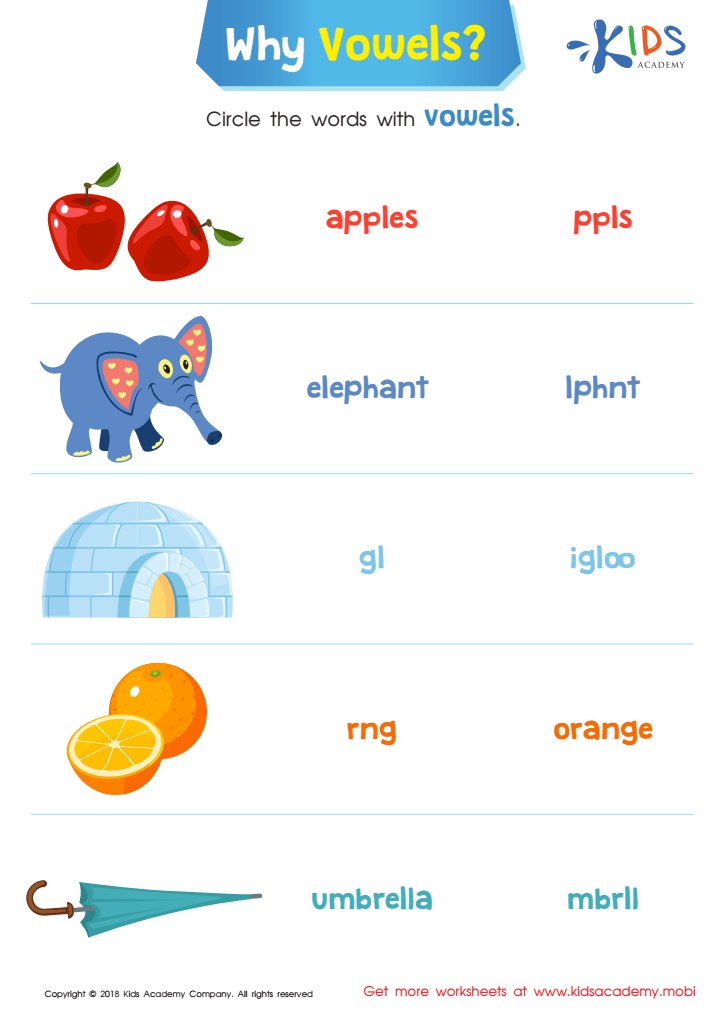

Why Vowels? Reading Worksheet
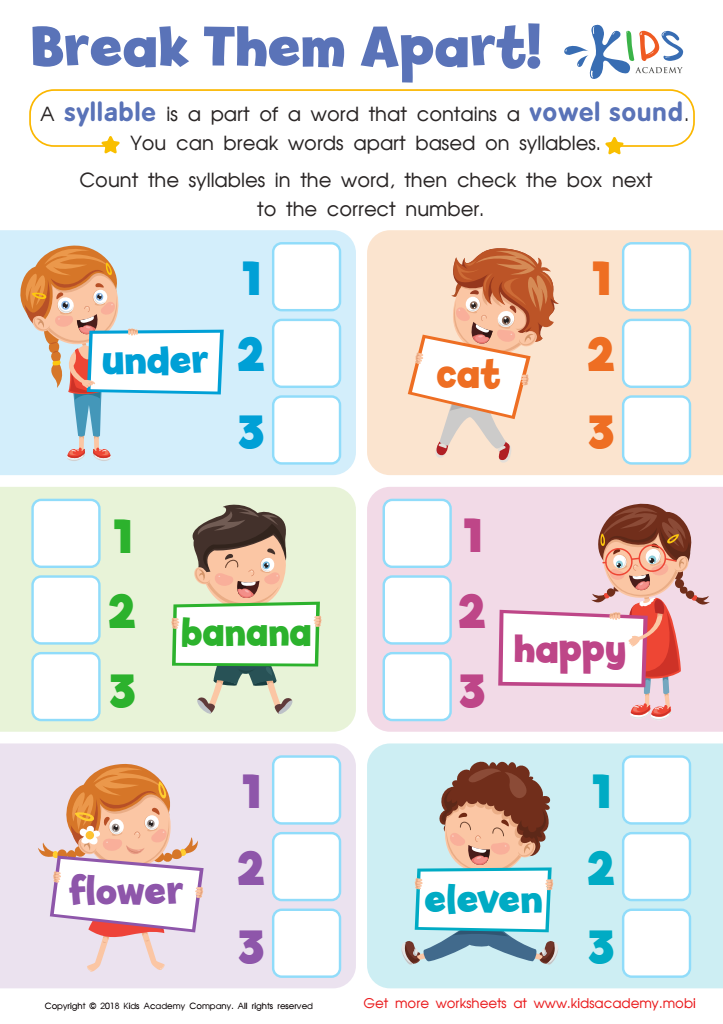

Reading: Break Them Apart Worksheet
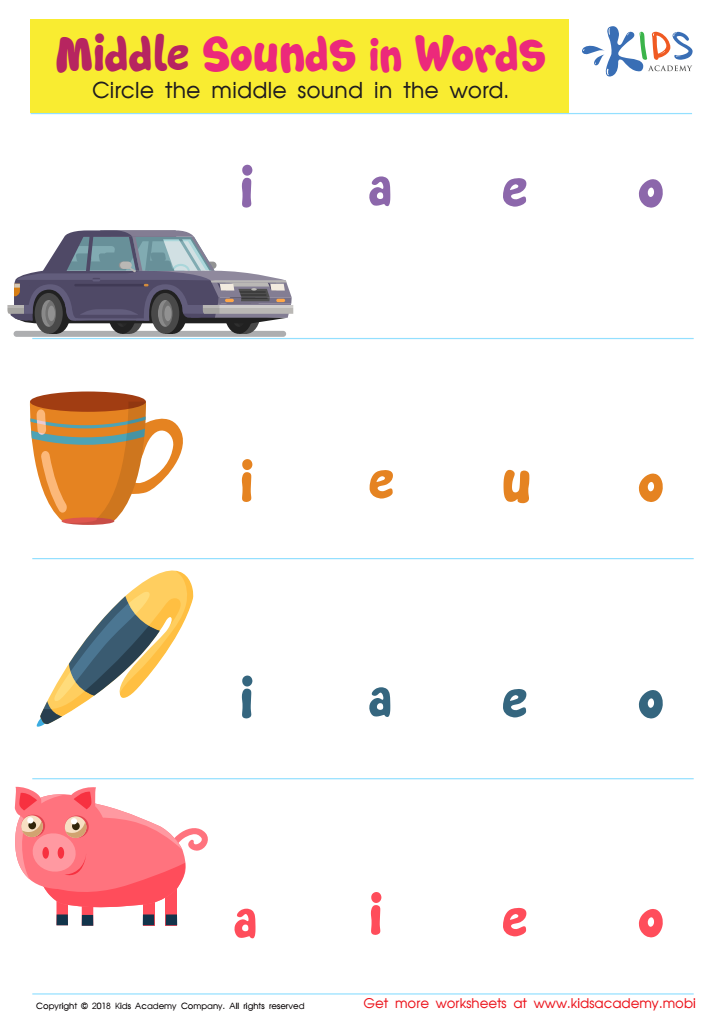

Middle Sounds in Words Worksheet
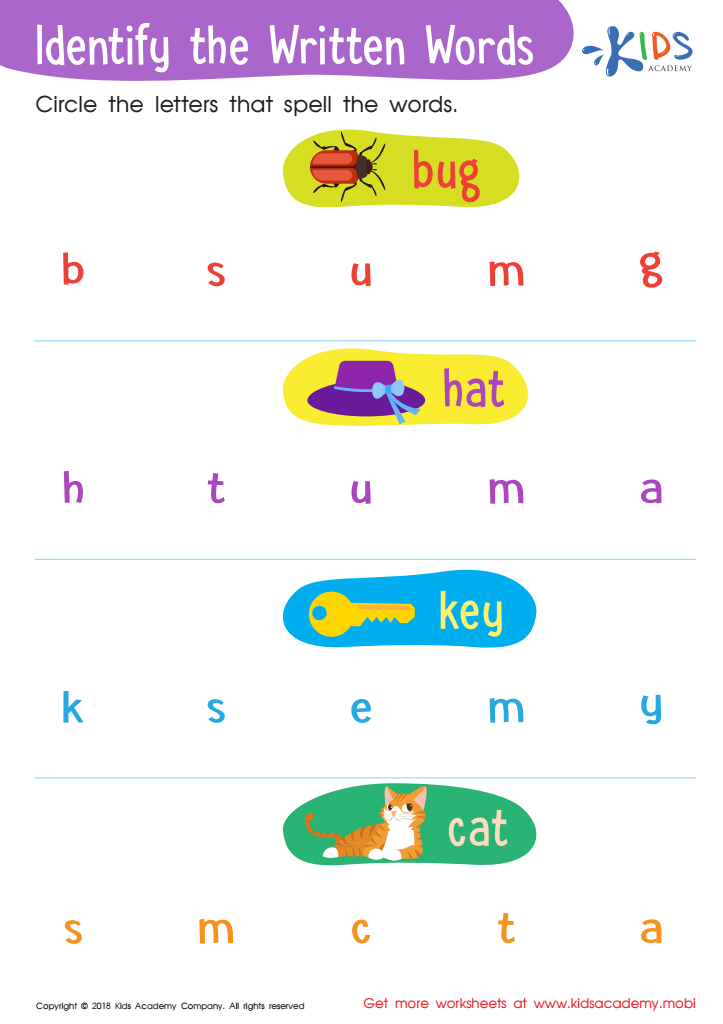

Identify the Written Words Worksheet
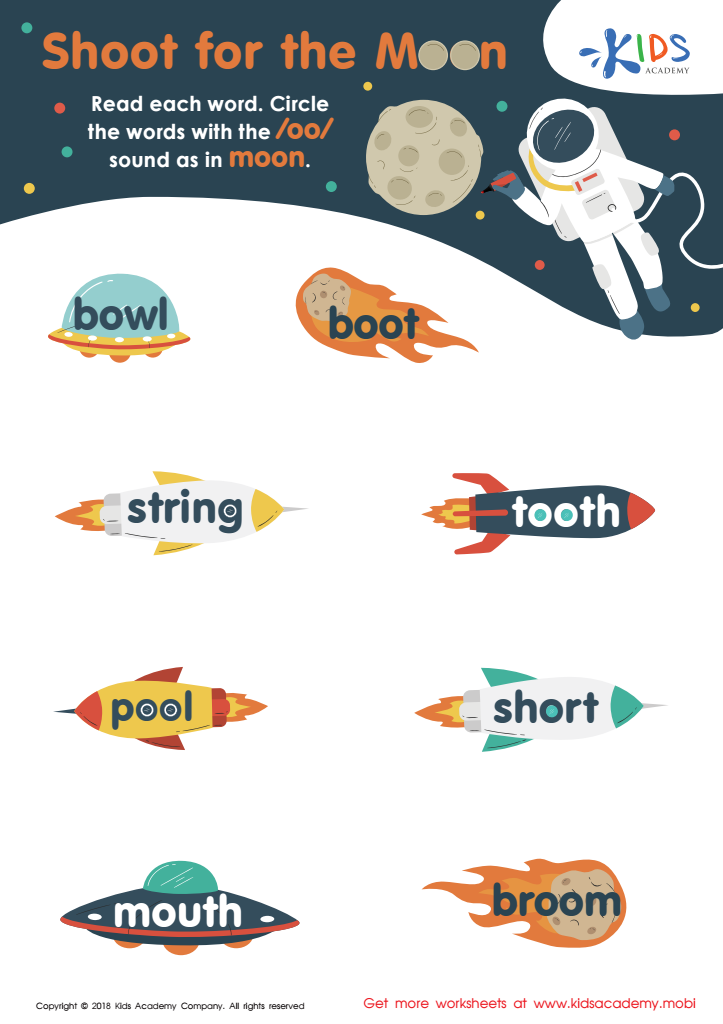

Reading: Shoot for the Moon Worksheet
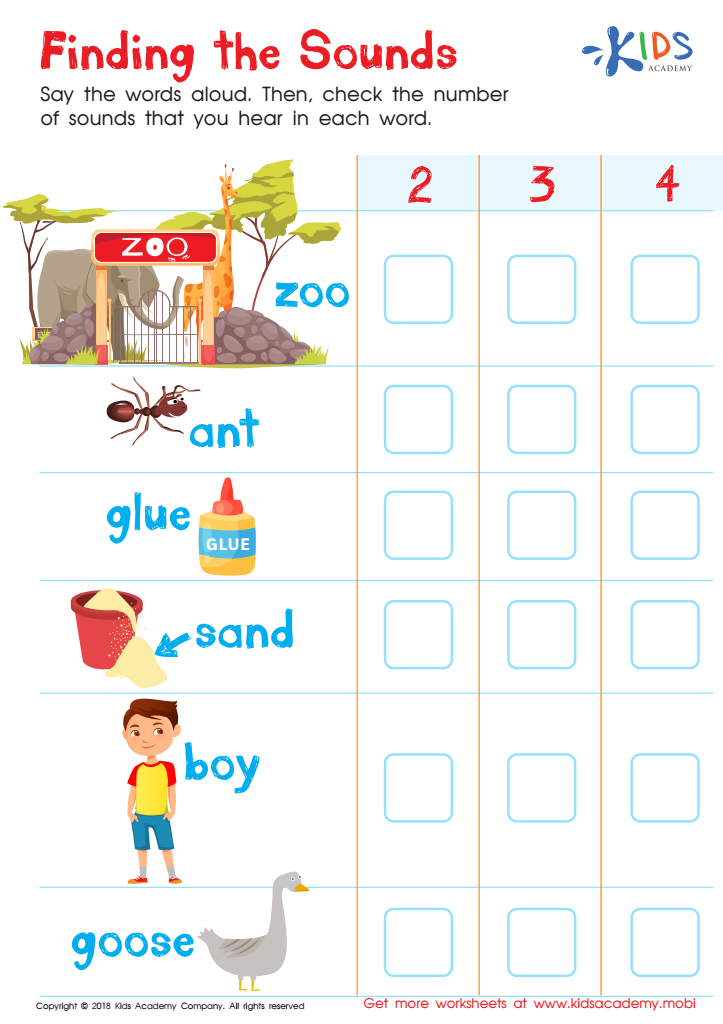

Finding the Sounds Worksheet
Vocabulary development and phonics are crucial for children aged 6-7, targeting foundational literacy skills essential for academic success. During this stage, children transition from learning to read to reading to learn. By focusing on phonics, children learn the relationships between letters and sounds, enabling them to decode new words independently. This skill fosters confidence and encourages a love for reading.
A rich vocabulary allows children to articulate their thoughts and ideas effectively, enhancing comprehension and communication. When parents and teachers emphasize vocabulary development through engaging activities—like reading diverse books, playing word games, and encouraging discussions—children acquire a broader range of words, which strengthens their ability to understand complex texts in the future.
Additionally, a strong vocabulary aids in subject matter mastery across the curriculum, as students encounter new terms in science, math, and social studies. This comprehensive approach to literacy not only prepares children for reading fluency but also lays the groundwork for critical thinking skills necessary in later academic challenges. Therefore, prioritizing vocabulary development and phonics equips children with the essential tools to navigate their educational journeys successfully, promoting lifelong learning and literacy engagement.
 Assign to My Students
Assign to My Students















